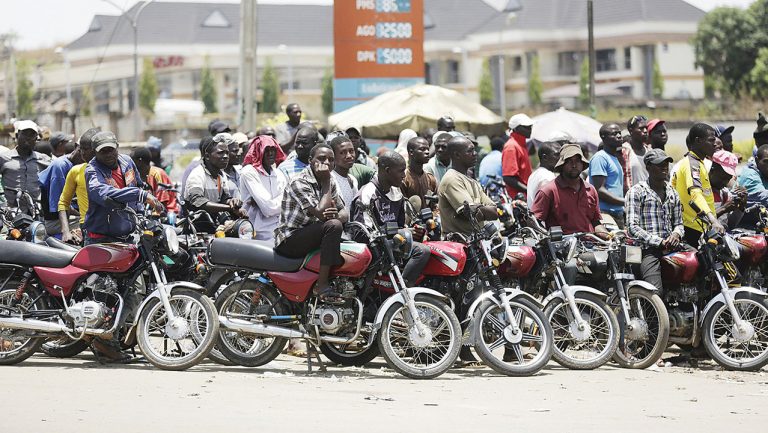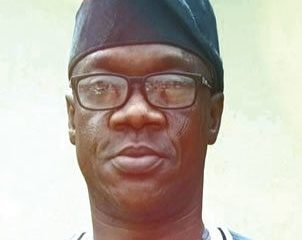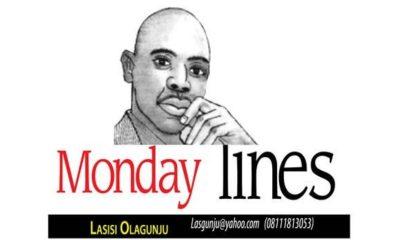News
OPINION: The Ibadan Protest Against Hardship
Published
2 months agoon
By
Editor
By Suyi Ayodele
An Ibadan man accompanied his wife and daughter to the market in search of salt to add to their tasteless pot of soup. That was in March 1881, when the city was besieged by hunger and war. It was a season of famine. The man who accompanied his wife and daughter to the market lost one of them right there, he became ‘wifeless’. What happened? His wife was bartered away to an Egba man by his daughter for a measure of salt! Yes! The daughter exchanged her mother for salt! That was the terrible situation Ibadan was at that time. The economic strangulation of that period took away the most critical ingredient from the people’s table, salt. Ibadan people and those from the adjoining towns and villages prepared their meals without salt and ate what the Yoruba people call àté (tasteless meal). The situation arose because Ibadan was at war with so many of its neighbours such that there were economic blockades against the city. How was the matter resolved? The entire episode and what the Ibadan did can be found in The Rev. Samuel Johnson’s book: “The History of the Yorubas” (556-560).
Ibadan is not just the capital of Oyo State. In the Yoruba political and social configurations, Ibadan is much more than a mere capital of a state. There is something peculiar about the city. In elementary geography, we were taught that Ibadan is the largest city in the West African sub-region. Again, the city of Bashorun Oluyole is more than being the largest city in West Africa. Ibadan is the capital of the Yoruba race. It is a city that every Yoruba man or woman must pay attention to what is happening there. The people of the city salute themselves as “Ibadan Mesiogo.” The simple translation of that praise name is Ibadan people know the answer to every poser; and you cannot get the best of an argument with an Ibadan person. The city has a way of influencing what happens in other Yoruba towns and villages. It is a unique city, a pacesetter of sorts! The old Western Region always waited for Ibadan to act and the others would follow. If Ibadan boils, the entire Yoruba landscape boils. Check out the history of the city, there is no tribe or sub-ethnic group in Yorubaland that is not represented in Ibadan. As a result of the numerous wars and battles, the forebears of Ibadan had fought, won and lost, all tribes, as far as those from Benin Republic, Togo and others, have their kith and kins in Ibadan. It is a city nobody should toil with.
Before the debut of the present political dispensation, Ibadan played significant roles in bringing about democracy. During the era of the expired dark-goggled military tyrant, General Sani Abacha, Ibadan was the city which never allowed the perfidious two-million-man march for Abacha to transmute from a military dictator to a pseudo-civilian president to take place without consequences for the organisers of the shame called solidarity march. The city defends democracy. It also has the capacity to end democracy, when it veers into dictatorship. Ibadan, as the capital of the then Western Region was a study in democracy and fairness. It played that role adequately well in the First Republic. It was also from Ibadan that the beginning of the end of the First Republic started. A dynamic city, Ibadan never suffers fools gladly. When the First Republic was turning to a one-party state, with brazen political shenanigans being displayed arrogantly by the Northern People’s Congress (NPC) government of the day at the centre, Ibadan responded appropriately. By the time the smoke of the operation wetie cleared, the First Republic was gone! The same feat was repeated in 1983, when the then ruling National Party of Nigeria (NPN) announced its “moon slide” victory at the state gubernatorial elections. The riots that broke out in Ibadan on August 13, 1993, over the governorship election in the old Oyo State (Oyo and Osun now), spread like a harmattan conflagration to the defunct Ondo State (now Ekiti and Ondo States). Barely four months later, the Second Republic died like its predecessor.
FROM THE AUTHOR: OPINION: What Is Killing Our Obas?
Yesterday, Monday, February 19, 2024, Ibadan was in the news again. Very early in the morning, residents of the city trooped out in their thousands in protest against the hardship in the land. It was a “peaceful” protest though; it was nevertheless a pregnant one. The protesters were out on the streets because of the rising cost of living and economic hardship Nigerians are subjected to in the last eight months. The Monday protest by Ibadan residents is significant, especially, to good students of history. Anytime residents of Ibadan are subjected to economic hardship that has the tendency to cut short their lives, they always rise to the occasion. They do this, when, for instance, essential commodities are going out of the reach of the people.
Nigeria is not at war at the moment, but Nigerians have started selling one another to cushion the effects of the present economic hardship. Just as the Ibadan young girl bartered her mother for a measure of salt, mothers have started selling their children to raise money to buy food so as to take care of the remaining children! We are in terrible times. Things are not adding up again. Prices of essential food items have gone out of the reach of the poor. Even the rich are gradually feeling the heat. The tension in the land is palpable. Nigeria is at its combustive end. Nigerians now eat to be alive, and not to be filled and satisfied. Prices of goods, especially food items, are as unpredictable as the weather. The price of a measurement of beans in the morning is no longer the same price in the evening in the same market and by the same seller! The real tough times are here. The pains and agony in the land are real and menacing. A friend said, “The traders are mean and exploitative.” He had more to say: “What has exchange rate got to do with the prices of gaari and plantain?” He asked. I responded by asking what the gaari seller would do anytime she needed to buy a Milo beverage for her child and discovered that the price had tripled from what she paid the last time. This is elementary Economics. The gaari seller is merely reacting to the pull of market prices. She needs to make profit to be able to buy other items that her household needs for survival. For instance, if the plantain seller has an on-going building project, and he bought a bag of cement at N5,800 mid-January, with the same bag of cement going for N10,000 now, he would probably not sell a bunch of plantain for the same N3,00 he sold it in January. This is why the idea that the government would try to control the prices of food items is laughable. It shows that we have complete novices at the helms of our economic policies. How on earth do you control the prices of what is not yours? Same way the decision to break into storehouses of some businesses, or to seal up some stores as done to Sahad Stores, Abuja, by the Federal Consumer Competition and Protection Commission (FCCPC), remains base. It is a confirmation of the height of cluelessness of those in government at the moment. If you release all the items in all stores and silos in Nigeria today, how long will they last? When they are exhausted, what follows?
FROM THE AUTHOR: OPINION: Emir Of Kano’s ‘Insult’ To Tinubu
Truth be told, this government is like the typical hawk that thinks the man below doesn’t see it. Who in Nigeria does not know that this regime is a heavily transactional administration? Who is not aware that while the poor people are struggling to make ends meet, our new husbands are living in obscene luxury? When you run an absolute transactional government with the meanest of personnel superintending over the golden departments of the State, you cannot but have a catastrophe of the present magnitude. The rate at which Nigerians are being impoverished on hourly basis by this administration, President Bola Ahmed Tinubu may go down in history as the most unfeeling president ever in the history of the country. That, itself, is as sad as it is ungodly! Nigerians are no fools. I hope the government knows that. They can make comparisons. Nigerians knew that the administration of the People’s Democratic Government (PDP) was bad for them. That was why they voted the party out of power in 2015, after 16 years, and replaced it with the present All Progressives Congress (APC) regime. The people also know that life was much better under the PDP than they have now. Worse still, Nigerians can also see that there seems to be no difference between the eight years of General Muhammadu Buhari’s absent leadership and the eight months of President Tinubu’s bizarre leadership with oddball economic policies! This is becoming too much of a disaster for the people!
This is why I became agitated when the news flashed that Ibadan residents had joined the fray. Penultimate week, it was in Niger State that women trooped out in protest. Last week, Ota people in Ogun State were also on the streets. I saw the video of the protest. I asked myself what the government was doing to arrest the situation. Midway into this piece, a senior colleague sent yet another disturbing news about the protest that broke out in Otukpo, Benue State, over the high cost of tuition fees at the Federal University of Health Sciences, Otukpo (FUSHO). In Ibadan, the protesters were more direct. One of the placards they carried had the inscription: “Tinubu gooooo”. Some others read: “End food hike and inflation”; “Tinubu don’t forget your promises”; “Give us good health facilities.” I pray President Tinubu will pay attention to these cries by the people. My wish is that the president acts and nips these pockets of protest in the bud lest other cities pick up the baton and what started as isolated protests become a coordinated and simultaneous venture across Nigeria. Ibadan has a way of enhancing democracy; same way it has the capacity of either resetting or unsettling demons and ‘democracy’.
You may like


Bello And Enenche: A Tale Of Two Lions [OPINION]


OPINION: Why Were Miyetti Allah And Tinubu’s Iyaloja In Ibadan?


OPINION: Bobrisky’s Masque, Yahaya Bello’s Boa


OPINION: Onitiri-Abiola And The Madness In Ibadan


OPINION: For Yoruba Muslims And Pentecostals


OPINION: Bobrisky And Our Other S/He Offsprings
News
Lagos, Ondo, Taraba Top In Highest Okada Fares In March – NBS
Published
7 hours agoon
April 28, 2024By
Editor
A recent National Bureau of Statistics report shows Lagos, Ondo, and Taraba recorded the highest Okada (motorcycle) fares in March.
The data indicates substantial differences in transportation costs across various Nigerian states.
In March 2024, the average fare for Okada rides per trip in Nigeria rose by 2.15% compared to the same period last year, with fares reaching N472.16, up from N462.21 in March 2023.
This was contained in the most recent National Bureau of Statistics Transport Fare Watch report for March 2024, published on the agency’s website.
READ ALSO: Ondo 2024: lT Expert Emerges As SDP Candidate
However, fares in Lagos, Ondo, and Taraba states were notably above the national average for March 2024.
Lagos had the highest Okada fare at N850 per trip, with Ondo following at N725 and Taraba at N670, illustrating significant differences in transportation costs across regions.
Imo and Yobe states, with average Okada fares of N655 and N630 respectively for March 2024, ranked fourth and fifth among Nigerian states for the highest motorcycle journey costs per trip.
News
Trouble Looms As OAU Students Threaten Shut Down With FG Over Fuel Crisis
Published
8 hours agoon
April 28, 2024By
Editor
The students’ Union of Obafemi Awolowo University said on Sunday, said the challenges faced by students due to the sudden surge in the pump price of Premium Motor Spirit and the scarcity of the product have reached unprecedented levels.
The President of the union, Abbas Ojo, in a statement released on the campus in Ile-Ife, Osun State, and sent to The PUNCH, urged the Federal Government to immediately address the issues.
The union threatened to hit the streets in protest if the situation persisted.
Since the weekend, queues have surfaced across some filling stations in Ogun and Lagos states as some stations also remained shut.
The PMS also known as petrol has been selling between N700 and N800 at some filling stations. Some persons claim to buy the fuel at prices higher than N800 in Lagos and Ogun with the situation causing a hike in transport fares.
READ ALSO: Residents Displaced As Rainstorms Wreck Havoc In Edo Community
The Nigerian National Petroleum Company Limited had said some supply issues were responsible for the queues, urging customers to exercise patience.
A resident, Tomisin Bakare, who said he bought PMS from a filling station around the Lagos State University-Igando axis stated that he was shocked when the attendant said fuel was N700 per litre.
“This is after I had already spent over 50 minutes in the queue,” he added.
According to the students’s union president, the situation is not different in Osun, particularly around the campus environs where he noted bus drivers had increased fares.
“We, as students, can no longer endure the burden imposed by the government’s economic policies,” Ojo said.
READ ALSO: 86-year-old Injured As Fire Guts Building In Kwara
“Last year, when the decision to remove fuel subsidy became public knowledge, many, including students, harboured doubts about its impact on the nation’s economy. Even those who supported the removal of subsidies were skeptical, given the absence of concrete plans to alleviate the ensuing challenges,” he added.
President Bola Tinubu on May 29, 2023, during his swearing-in, announced the removal of fuel subsidy. Since then, Nigerians have been grappling with harsh economic realities coupled with the depreciation of the naira against the dollar.
“From soaring electricity tariffs to the skyrocketing cost of living, the adverse effects of the government’s capitalist policies have spared no one.
“Despite these challenges, students persist in their pursuit of education and academic endeavours. However, recent events such as fuel shortages and fluctuating prices have left students stranded both on campus and outside campus,” Ojo stressed, noting the students had been pushed to limits.
The union demanded immediate action from the FG to address the fuel scarcity, curb suspected hoarding of fuel, and regulate prices.
“We also demand that the government should revive the country’s refineries. The government must not test our will by not addressing these demands within the next 48 hours. Failure to do so, we shall hit the streets till the government addresses the fuel crisis which constitutes a threat to our academic pursuit,” the statement added.

Popular Gospel singer Morenikeji Adeleke, also known as Egbin Orun, is dead.
Her colleague Esther Igbekele, confirmed the death in an Instagram post on Sunday.
The gospel singer expressed shock and sadness, sayin Egbin Orun departed suddenly without bidding farewell.
According to her, the two had recently spoken, unaware of the impending tragedy.
READ ALSO: How God Saved Me From Firing Squad – Gospel Artiste, Buchi
Igbekele praised Egbin Orun’s beauty, kindness, and strong support for her ministry.
She wrote, “I got home from my program to hear about this great loss.. Prophetess Morenikeji Egbin Orun you left without saying goodbye..
“We spoke together last week not knowing you are about to embark on a journey to the great beyond.. You are such a beautiful and kind hearted woman and a very good supporter of my ministry.
READ ALSO: Outrage As Kingsmen Flogged Anambra Man To Death [VIDEO]
“I am deeply saddened with your demise but God knows best. You will be greatly missed and your good deeds will continue to linger in our hearts.
“Ah Egbin Orun. Good night! Keep resting in the bosom of Christ.. Ah Gone too soon..Yeeee.”
The cause of her death remains undisclosed and no official statement has been issued.

Delta Police Kill Suspected Kidnapper, Rescue Victims, Arrest Armed Robber Cultist

Gunmen Assassinate Governor Aiyedatiwa’s Campaign Coordinator In Ondo

Five Injured As Vehicles Collide In Lagos
Trending

 News4 days ago
News4 days agoDrama! Supporters Of Yahaya Bello Perform Rituals to Prevent His Arrest By EFCC [Video]

 Entertainment5 days ago
Entertainment5 days agoNollywood Actor, Zulu Adigwe Is Dead

 News5 days ago
News5 days agoVIDEO: Force PRO Orders Arrest Officers Caught On Video Bashing Driver’s Car

 News3 days ago
News3 days agoEdo: FRSC Threatens Sanction On Truck Drivers Loading Goods, Passengers Together

 Headline3 days ago
Headline3 days agoSaudi Arabia Opens First Alcohol Store, Nigerian Muslims React

 Metro5 days ago
Metro5 days agoEdo Cultists Kill Rival In Daughter’s Presence, Abandon Getaway Car

 Headline3 days ago
Headline3 days agoVIDEO: Meet Nigerian Pastor Who Predicted World Will End April 25

 News3 days ago
News3 days ago243 Passengers Cheat Death As Air Peace Plane Makes Emergency Landing At Lagos Airport

 Metro4 days ago
Metro4 days agoJUST IN: Four-year-old Boy Dies In Abuja School, Parents Suspect Foul Play

 Metro4 days ago
Metro4 days agoJUST IN: Protesters Storm APC Secretariat, Demand Ganduje’s Resignation





























